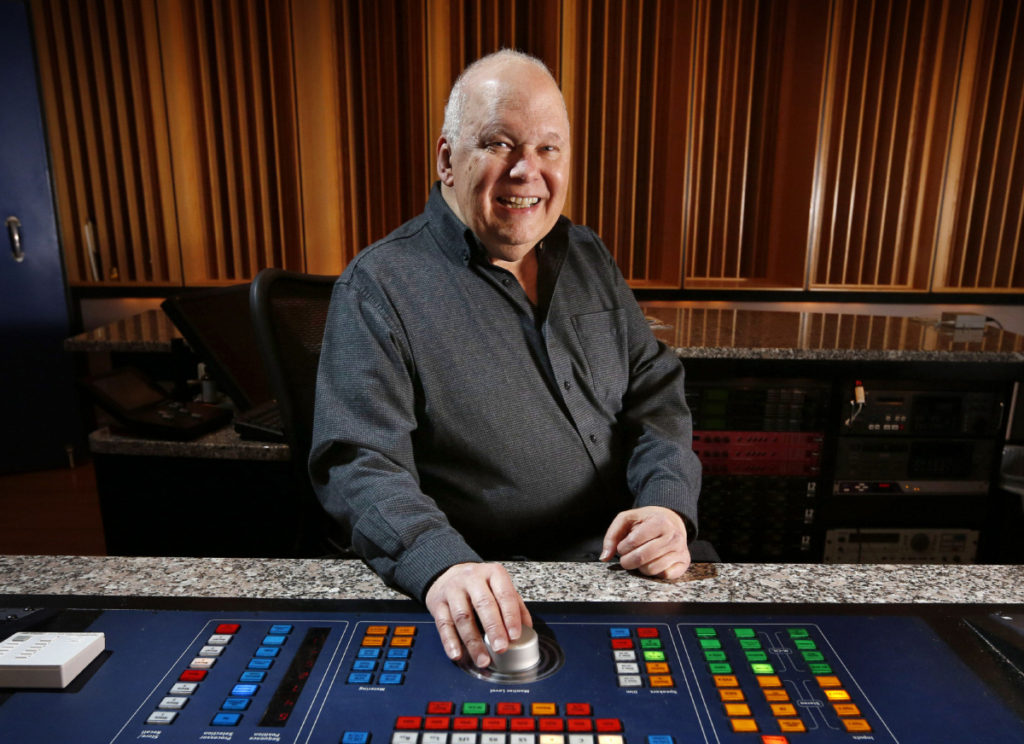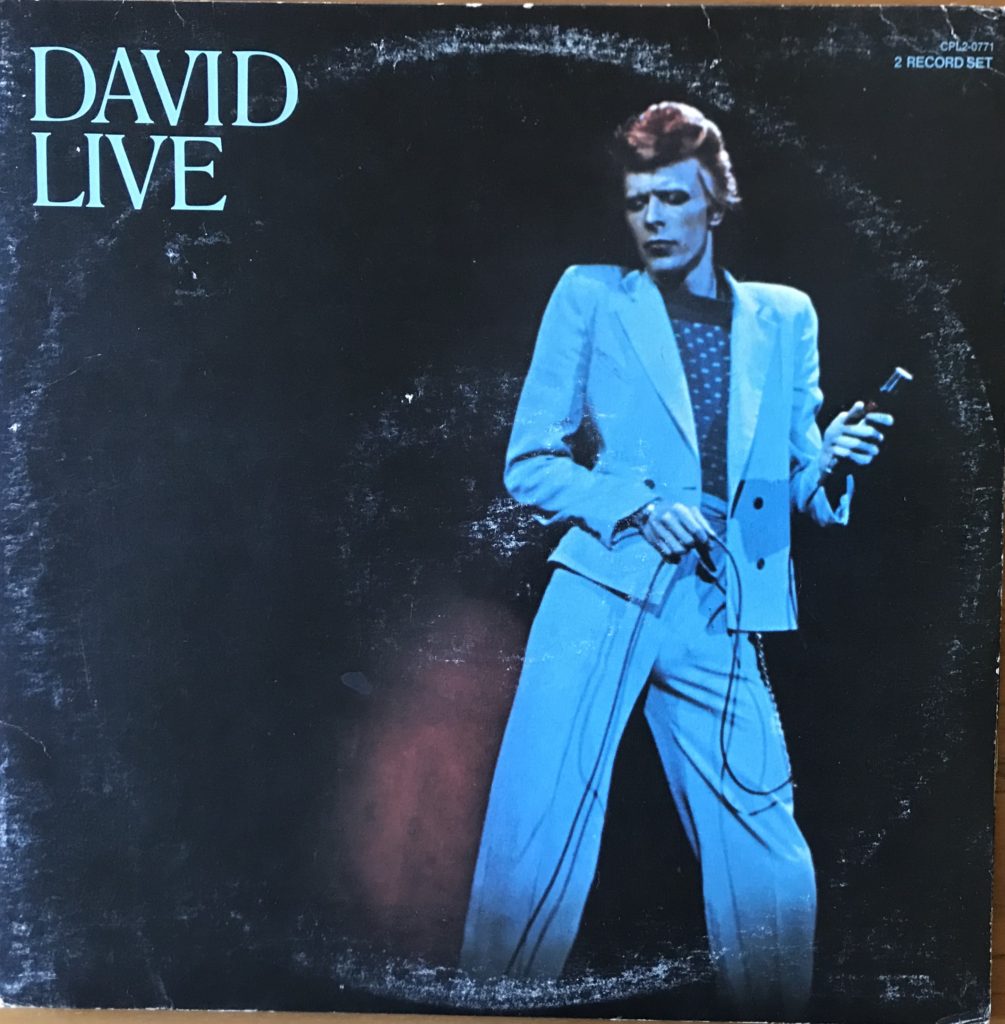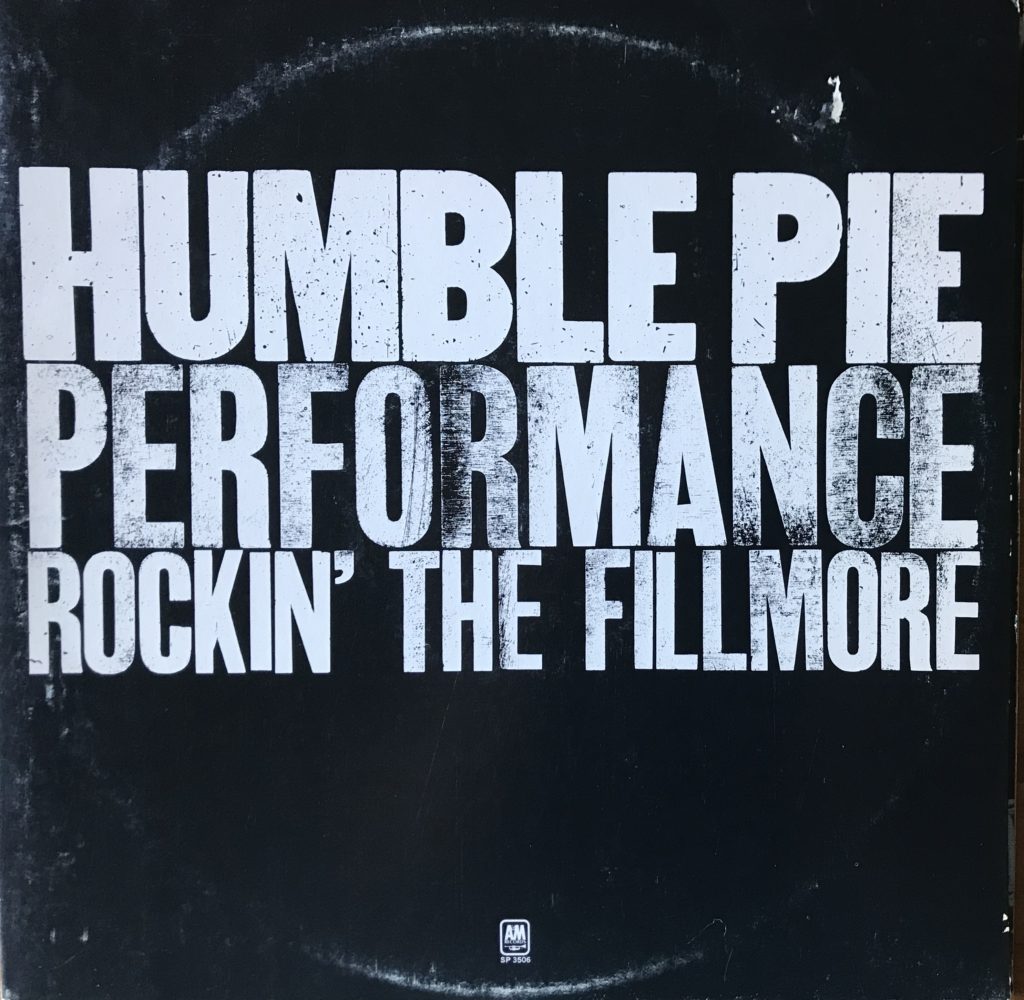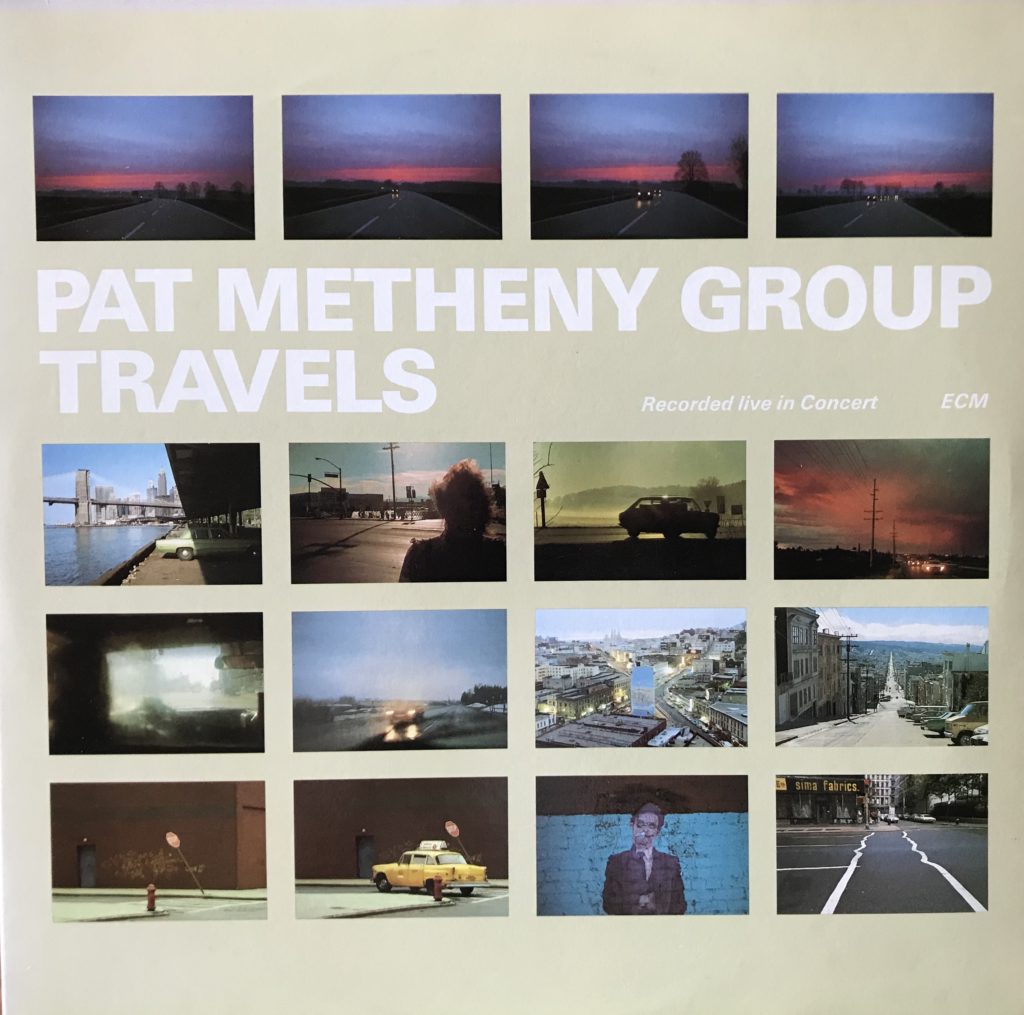
For the average music fan the mastering engineer responsible for bringing the sound of the artist’s master tapes into their living rooms is rarely a household name. But for record collectors, especially audiophile collectors, mastering engineers are sometimes an even bigger draw to a given album than the artist themself.
No mastering engineer personifies this more than Robert Ludwig. Mr. Ludwig, or Bob, as he is commonly known, has been mastering albums for a variety of artists of various musical genres since the early 1960’s and is still one of the mosts respected mastering engineers working today. His signature “RL” credit is etched in the runouts of some of the most sought after vinyl pressings, including his famous “cut” of Led Zeppelin’s sophomore album, the record he’s perhaps best known for among collectors.
Bob’s ability to bring recorded music to life on a vinyl record is uncanny, and while his version of Led Zeppelin II is nothing short of astonishing, I find the live albums he’s mastered to be some of his best work. Bob somehow manages to capture the energy, scale and electricity of a live performance better than just about anyone else who’s ever cut a record.
Studio recordings have historically been my first choice when buying music, and no doubt they have advantages both musically and sonically for communing with our favorite artists. The studio recording, after all, is often the closest thing to representing an artists vision for their work, and the studio environment is the place where that work is brought to life with the greatest sense of intimacy with the performer.
But as I’ve gone deeper down the audiophile rabbit hole I’ve found myself listening to live albums more and more often. The experience of listening to a well recorded, well mastered live album can be breathtakingly real and immediate, and the presentation sometimes huge to the point of near overwhelm.
In this post I’ll be highlighting some of my favorite Bob Ludwig mastered live records and why I love them. Feel free to weigh in with comments, and if you have any favorites of your own I’d love to hear from you!
 In July of 1974 David Bowie was touring Canada and the US for Diamond Dogs. Bowie was a big deal already after putting out a steady string of strong records including his masterpiece “The Rise and Fall of Ziggy Stardust…”, but he wasn’t filling arenas at this point and it was the 3000+ capacity Tower Theater near Philadelphia where he recorded two performances from which to create his first live album, David Live.
In July of 1974 David Bowie was touring Canada and the US for Diamond Dogs. Bowie was a big deal already after putting out a steady string of strong records including his masterpiece “The Rise and Fall of Ziggy Stardust…”, but he wasn’t filling arenas at this point and it was the 3000+ capacity Tower Theater near Philadelphia where he recorded two performances from which to create his first live album, David Live.
The album was produced by Tony Visconti who had also produced the self titled album David Bowie, later re-titled Space Oddity, as well as The Man Who Sold the World. Tony would continue to work with Bowie, on and off, for his entire career including Bowie’s final album, Blackstar.
The liner notes for David Live say that the recording for the album is “complete and exact” and that “no studio overdubs or re-recording of voices, instruments or audience have been added with the exception of several backing vocals due to loss of theater mike contact.” The Wikipedia entry states that it was actually “most of the backing vocals, as well as the saxophone” that required studio overdubbing.
While the backing vocals do represent a weak spot for me on this album, the recording engineer Keith Harwood and his team still did an amazing job and the album overall sounds fantastic. Meanwhile, in the master that Bob Ludwig cut for this album he captures the spaciousness and energy of the performance and the size of the stage show. A good copy of David Live delivers a compelling live performance experience.
The album was criticized for Bowie’s “rearrangements” of his songs, but I really appreciate the artistry driving Bowie’s arrangements and performances on David Live. Bowie was getting into Philadelphia soul at the time and already moving on from the sound on the records he’d done up to this point. In this sense David Live represents both a retrospective and a preview of what he’d be doing on his next studio album, Young Americans.
I especially like the versions of “Jean Jeanie” and “Aladdin Sane” on this album, but here are what I consider to be some of its other highlights:
David Sanborn’s saxophone playing throughout the album is wonderful and gives the album much of its flavor and flair. Especially on “Sweet Thing.”
Earl Slick’s ripping guitar solo on “Moonage Daydream” rocks! He’s great the throughout the album but really stands out for me on this track.
The rhythm’s section on “Aladdin Sane” is just phenomenal. Herbie Flowers’ bass and Pablo Rosario’s percussion support some virtuoso piano work from Michael Kamen here. What a great track!
Bowie’s vocals on “Rock & Roll With Me” are a great test for vocal presence on your copy of the record. He should appear front and center and larger than life. When he does this anthem will really come to life!
“All The Young Dudes”, a song Bowie wrote and gave to the band Mott The Hoople, doesn’t appear on any of his studio recordings and is actually the primary reason I originally bought a copy of David Live.
The drums and bass on “Big Brother” pack a real whallop on this track. Man I love the sound of live drums recorded well!
From a collecting standpoint, David Live can be a frustrating album. There are quite a few versions of early pressings out there, some with Bob Ludwig’s “RL” credit and some without. And even though there are several versions on Discogs that list his credit in the matrices of all four sides of the record, very often sellers have listed their copies for sale under these releases despite the fact that these copies don’t have the credit on all four sides. Copies with the credit on just 3 of the four sides, for instance, are annoyingly common.
You may ask then, does this matter? Do the sides with the “RL” credit sound better than those without it? In my experience the answer is “yes,” and it has led me acquire an extra copy solely for the purpose of having a side with the “RL” credit for each side of the album.
In what way does it sound better? Well, in the way that many of Bob’s versions sound better than those cut by other mastering engineers. They sound BIGGER, bolder and more alive. On “Width of a Circle,” for instance, the drums will sound big on any copy, but when comparing the “RL” side with this track to a non-“RL,” the drums on “RL” sound MASSIVE, and this increase in sense of scale is, in my view, exactly what we want in a live Bowie recording. We want David and his music to appear larger than life.

In the spring of 1971 Humble Pie was touring the U.S. after releasing their fourth studio album Rock On on A&M records. Shortly before wrapping up the tour they recorded their first live album at The Filmore East, a Bill Graham venue in the East Village in NYC and released an album of material from that concert – Performance Rockin’ The Filmore that same year.
The album features only one original song, “Stone Cold Fever” from Rock On, and delivered one modest hit with the Ashford and Simpson penned “I Don’t Need No Doctor” which reached #73 on the Billboard Hot 100 chart in October of the same year. The album itself reached #21 on the Billboard Top 200 and the top 40 in the UK.
Recording engineer Eddie Kramer does a wonderful job putting the listener into the audience and the atmosphere is nothing short of electric. There’s a choice audiophile moment at the beginning of Dr. John’s “I Walk On Gilded Splinters” where a concert goer kicks over a beer bottle and we can hear it tip and roll off toward the stage. I used this detail when shooting out the copies I had, favoring the sound of those that let me hear the bottle roll further away.
Fortunately Mr. Kramer’s fine work and the band’s stellar performance don’t go to waist. Bob Ludwig cuts this record masterfully and fully realizes the peformance. Humble Pie take their time here, giving a measured, almost languid show with long periods of slow jams that pull us along, gradually, until WHAM! The tempo starts to rise and the power of the drums and bass begin to build up and knock us back as we sit in anticipation of the guitars ripping through the enormous sound stage. With a decent copy it’s a blast to listen to. With a good copy we’re treated to the full force of the amplification and a veritable gut punch of a listening experience.
Early pressings of this record, those with the “RL” credit, are reasonably common in the bins, don’t appear to be in high demand, and are therefore not expensive even in good condition. I haven’t heard any of the reissues but with the early pressings being such monsters, I can’t imagine the reissues would improve on them.
As a fan of the album Rock On, especally it’s opening track, “Stone Cold Fever,” I particularly like their rendition of this song here on “Performance…,” but the whole album is great. Typically not a huge fan of filling an entire album side with single song, I found myself fully engaged by their artful arrangements of extended versions of “Splinters” and Muddy Waters’ “Rollin’ Stone.”
But as much as I love Humble Pie and the material on this album, the real star or the show IMO are the sonics and Bob’s stellar mastering work. As one of my new favorite Instagram posters vinyl_ragazzo likes to say, “it belongs in every well rounded collection.” Or least every well rounded audiophile record collection.

I’ve never been a big Pat Metheny Fan. I bought one of his records in high school when a friend who’d been studying jazz guitar at the The University of Miami raved about him. I could tell at the time that there was something that intrigued me about it, but it was a fair piece out of my wheel house at the time and ultimately I failed to connect with it. That left me resisting any further calls to buy more of his records and make any further inroads to appreciating his work.
Then a few years ago I acquired a copy of Travels and again found Metheney’s work intriguing, but I set it aside without really giving it a serious listen. As my interest record collecting grew I began recalibrating my music antenna and the album landed back on my radar. It was at this time I learned about Robert Ludwig and his work on Led Zeppelin II and the near obsessiveness collectors had for his “RL” credit. When I eventually bought an OP of Zep 2 and heard what all the fuss was about I became interested in Bob’s other work and the other records that were home to his work and his famous “RL” credit.
The performances recorded for the final version of Travels come from concerts the Pat Metheney Group did between July and November of 1982 and some of these concerts where at outdoor venues. I find good live recordings of outdoor performances a particularly impressive feat of recording and engineering skill, and I applaud Metheney’s and Manfred Eicher’s production, as well as Randy Ezratty’s engineering team who were no doubt tireless in their efforts to convey the band’s performances at these various venues to home listeners.
But Bob Ludwig’s stamp is all over the sound of this record, and that’s exactly what, as someone who has never really connected with Pat Metheney’s other albums, finally pulled me in. He brings more than the music to life. He manages to convey a sense of the space at an outdoor venue and deliver the entirety of the concert experience to the listener.
As I played Travels I wasn’t so much listening to the record as being enveloped by it. I could practically feel the warmth of the earth and the freshness of the evening summer sky. I could almost smell the skunky odors of stale beer and marijuana smoke (or maybe that was the joint I was smoking!). I found myself relaxing, settling in and and letting Metheney’s music blow over me like a gentle summer breeze.
As an audiophile nothing thrills me more than gaining appreciation and even enthusiasm for music that I wasn’t particularly interested in before, by experiencing that music reproduced well by a high quality system. But as good as my system is sounding to me at the moment, I don’t think I would be as excited about the records featured above if it weren’t for Robert Ludwig’s mastering. He brings an artists work to life like few can.